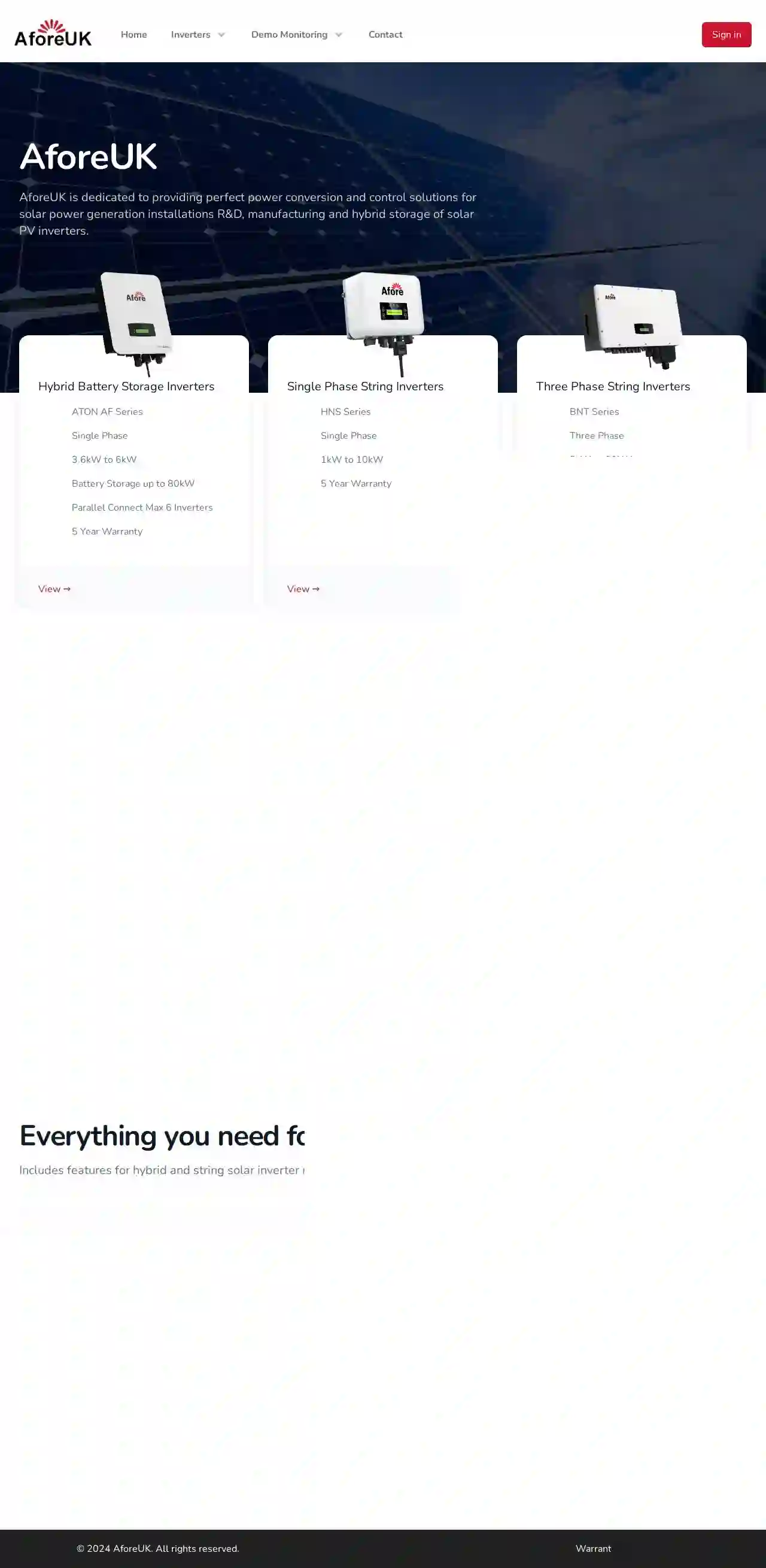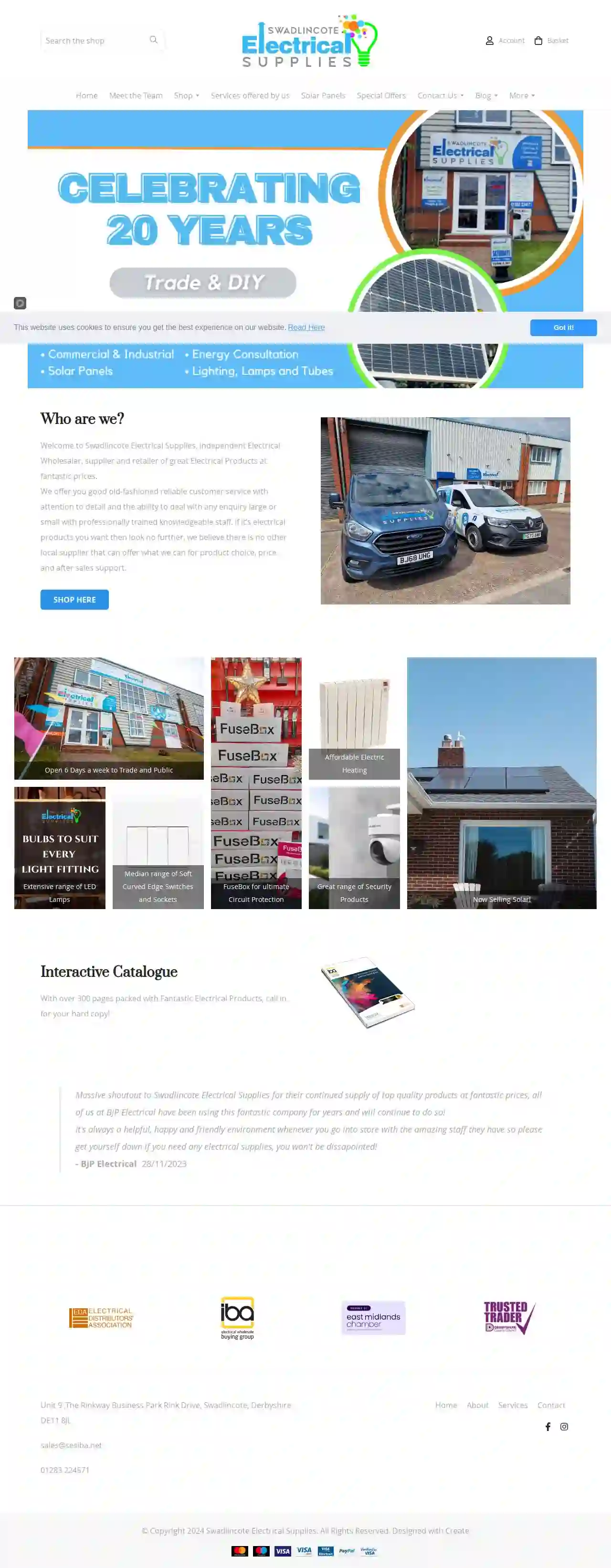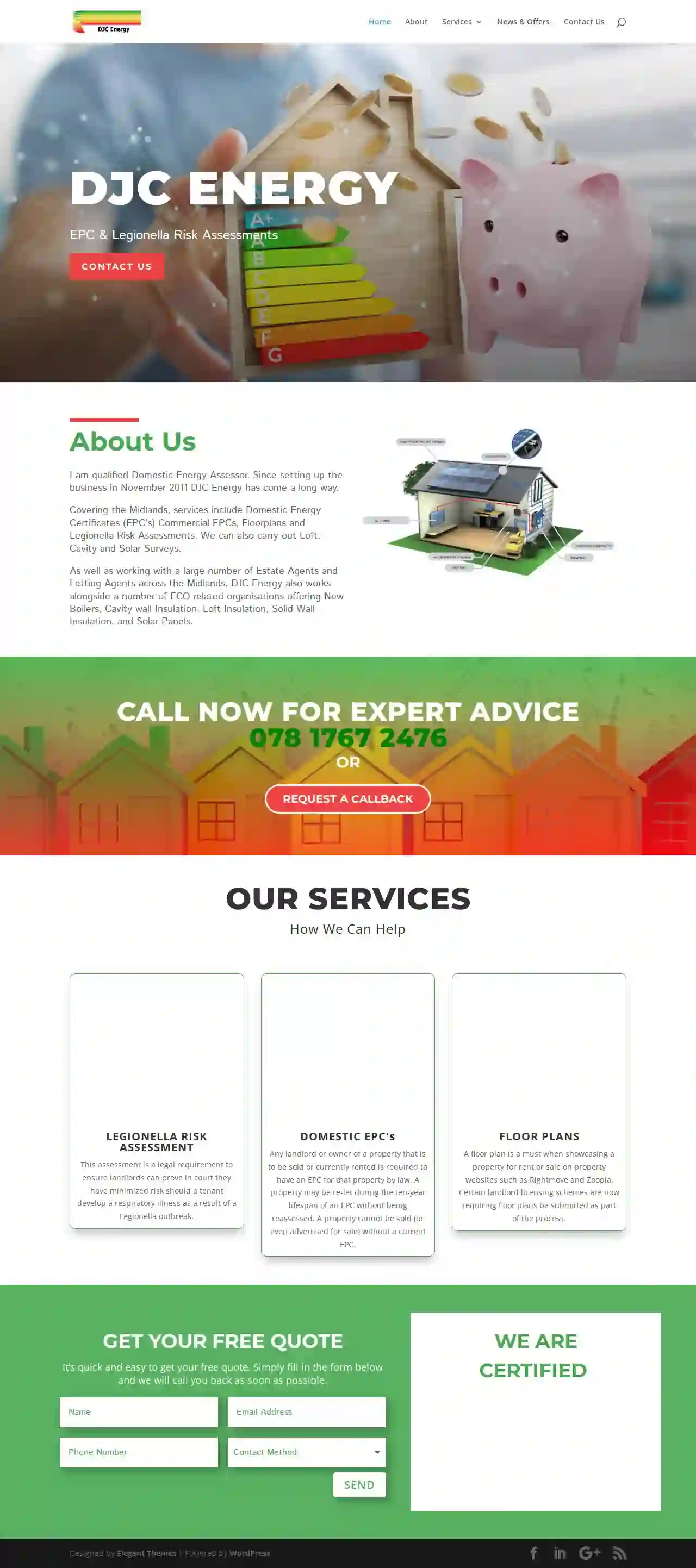Solar Installers Blackwell
Best Residential Solar Installers in Blackwell
Receive 3 FREE Solar Companies quotes for your project today! Compare profiles, reviews, accreditations, portfolio, etc... and choose the best service.

AforeUK Ltd
51 reviewsSwadlincote, GBAforeUK is a leading provider of hybrid and string inverters for residential and commercial applications. We offer a wide range of high-quality inverters from leading manufacturers, ensuring optimal performance and reliability. Our team of experts is dedicated to providing exceptional customer service and support. We are committed to delivering innovative solutions that meet the evolving needs of our clients.
- Services
- Why Us?
- Gallery
Get Quote
Swadlincote Electrical Supplies Ltd
4.823 reviewsUnit 9, The Rinkway Business Park Rink Drive, Swadlincote, DE11 8JL, GBWelcome to Swadlincote Electrical Supplies, your independent Electrical Wholesaler, supplier and retailer of great Electrical Products at fantastic prices. We offer good old-fashioned reliable customer service with attention to detail and the ability to deal with any enquiry large or small with professionally trained knowledgeable staff. If it’s electrical products you want then look no further, we believe there is no other local supplier that can offer what we can for product choice, price and after sales support. SHOP HERE Free Speedy Local Delivery Open 6 Days a week to Trade and Public FuseBox for ultimate Circuit Protection Affordable Electric Heating Now Selling Solar! Extensive range of LED Lamps Median range of Soft Curved Edge Switches and Sockets Great range of Security Products Interactive Catalogue With over 300 pages packed with Fantastic Electrical Products, call in for your hard copy! Massive shoutout to Swadlincote Electrical Supplies for their continued supply of top quality products at fantastic prices, all of us at BJP Electrical have been using this fantastic company for years and will continue to do so! It's always a helpful, happy and friendly environment whenever you go into store with the amazing staff they have so please get yourself down if you need any electrical supplies, you won't be dissapointed! - BJP Electrical 28/11/2023
- Services
- Why Us?
- Testimonials
- Gallery
Get Quote
M A Galaxy International
55 reviewsNewhall, Swadlincote, 62 New Road, Derby, DE11 0TH, GBM A Galaxy International is a leading solar company that has been working in the ENERGY Industry since 2000. We provide a global recycling service for farms, buildings, commercial & domestic properties. Our services include Recycling PV Panel, Equipment & Inverter, Replacing-Repowering Existing Solar Project, Dismantling Solar Panel, and Developing New Solar Project. We import & Export directly solar energy products globally from its manufacturers for residential and commercial projects. Our team are proud to help you buy the best solar panels, inverters and other equipment both brand new and used in an affordable price. We dedicated to wholesaling and retailing solar panels, inverters and other solar goods for use in homes, schools and businesses. We are committed to providing clean and green energy source to combat climate change.
- Services
- Why Us?
- Gallery
Get Quote
Positive Energy Solutions
4.516 reviews100-102, South Street, Unit 1, The Business Centre, Chichester, BN18 9AA, GBPositive Energy Solutions is a leading provider of renewable energy solutions in the UK. We are passionate about helping businesses and homeowners reduce their carbon footprint and save money on their energy bills. With over 10 years of experience in the industry, we have a proven track record of delivering high-quality, reliable solutions. Our team of expert engineers is dedicated to providing our clients with the best possible service. We offer a wide range of renewable energy solutions, including solar PV, wind energy, biomass, and heat pumps. We also provide energy efficiency services, such as insulation and lighting upgrades. We are committed to providing our clients with the most sustainable and cost-effective energy solutions. Our mission is to make renewable energy accessible to everyone. We believe that everyone should have the opportunity to reduce their carbon footprint and save money on their energy bills. We are committed to providing our clients with the highest quality products and services at competitive prices. We are also committed to providing our clients with excellent customer service. We are a customer-focused company and we are always looking for ways to improve our services. We are a team of experienced and qualified professionals who are passionate about renewable energy. We are committed to providing our clients with the best possible service. We are always up-to-date on the latest technologies and trends in the renewable energy industry. We are also committed to providing our clients with the most sustainable and cost-effective energy solutions.
- Services
- Why Us?
- Accreditations
- Our Team
- Testimonials
Get Quote
Solar Evolution
8 Hoskins Lane, Newton Solney, DE15 0TW, GBWelcome to Solar Evolution, a renewable energy specialist providing advanced solar panel technology and battery storage options to homes and businesses across the Midlands. With over ten years' experience, our team of experts will ensure your solar panels and battery storage system are installed to the highest standards, whilst also adhering to strict health, safety and environmental regulations. We offer a personalized service on every project to help you power your home or premises with the most advanced solar technology available.
- Services
- Why Us?
- Our Team
- Gallery
Get Quote
Djc Energy
Swadlincote, GBI am a qualified Domestic Energy Assessor. Since setting up the business in November 2011 DJC Energy has come a long way. Covering the Midlands, services include Domestic Energy Certificates (EPC’s) Commercial EPCs, Floorplans and Legionella Risk Assessments. We can also carry out Loft, Cavity and Solar Surveys. As well as working with a large number of Estate Agents and Letting Agents across the Midlands, DJC Energy also works alongside a number of ECO related organisations offering New Boilers, Cavity wall Insulation, Loft Insulation, Solid Wall Insulation, and Solar Panels.
- Services
- Why Us?
- Our Team
- Testimonials
- Gallery
Get Quote
Ticknall Solar Ltd
Info Unit 20, George Holmes Business Park, George Holmes Way, Swadlincote, DE11 9DFT, GBTicknall Solar Ltd are a designer, manufacturer and distributor of Solar Powered and mains powered road safety Warning lights based in South Derbyshire in the UK. Our products can be purchased direct from us or through trade distributors e.g Edmundsons Electrical. Our beacons are often specified in refurbishment projects and new build projects alike. Customers and major projects include: Sainsbury’s Supermarkets, our beacons have been installed in the car parks of over 150 stores across the UK. Heathrow World Freight Centre, 26 beacons installed 3 years ago. Hinkley Point “C” Power Station, 30+ beacons have been installed around one of the largest construction sites in Europe. Battersea Power Station Development Project, to-date 22 of our beacons have been installed at this prestigious development. Beckton Sewage Treatment Works, 16 of our beacons have been installed and one of the largest treatment works. Using the latest LED and solar power technology Ticknall Solar’s solar powered products offer zero carbon emissions in operation. Our environmental statement Ticknall Solar Ltd is committed to minimising the impact of its operations and activities on the environment. We aim to reduce environmental harm, minimise the use of energy and other resources throughout our business activity. We all have a responsibility for working in an environmentally friendly manner, therefore our policies and procedures with be regularly reviewed to reflect this. Delivering our operational plans within this policy will enable Ticknall Solar Ltd to develop sustainable practices and deliver meaningful contributions to the quality of our environment. Battery Recycling Did you know that each year in the UK we throw away around 600 million batteries? Laid end to end these batteries would reach from the UK to Australia and back again. That is a lot of batteries!! Batteries can be found in every room in the house. They’re used in toys, remote controls, mobile phones, alarm clocks and even doorbells. In fact, every person in Britain uses about 10 batteries a year! Most batteries are put into rubbish bins and then taken to landfill sites. There are lots of types of batteries which can contain dangerous chemicals (including lead, cadmium, zinc, lithium and even mercury). When batteries begin to rot away in landfill sites these chemicals may leak into the ground which can cause soil and water pollution. This can be harmful to animals, humans and the environment. Recycling is a great way to help protect the environment. Each battery placed in the recycling bin will be tak
- Services
- Why Us?
- Our Team
- Gallery
Get Quote- Sm
Smart Green Energy Company Ltd
Buxton, GB- Services
- Why Us?
Get Quote - So
Solarpaneltrack
Swadlincote, GB- Services
- Why Us?
Get Quote - Ma
Mainline Energy Solutions
Swadlincote, GB- Services
- Why Us?
Get Quote
Over 3,485+ Solar Installers in our network
Our solar companies operate in Blackwell & beyond!
SolarCompaniesHub has curated and vetted Top Solar Companies near Blackwell. Find a top & trustworthy business today.
Frequently Asked Questions About Solar Installers
- Contact SolarCompaniesHub: We make it simple to connect with reputable Solar Installers in your area.
- Get Free Quotes: Request free quotes from multiple installers to compare prices, systems, and warranties.
- Schedule a Site Assessment: A qualified installer will visit your property to assess your roof, energy needs, and discuss your goals.
- Review Your Proposal and Contract: Carefully review the proposed system, financing options, and warranties before signing a contract.
- Installation and Activation: Once the contract is signed, the installer will obtain necessary permits, schedule the installation, and activate your solar system.
- Analyze your energy bills
- Assess your roof's suitability
- Calculate your potential solar energy generation
- Recommend a system size that meets your needs and goals.
How do I get started with solar panel installation?
What happens to my solar panels during a power outage?
How do I choose the right solar panel system size for my needs?
Can I go completely off-grid with solar panels?
How do I get started with solar panel installation?
- Contact SolarCompaniesHub: We make it simple to connect with reputable Solar Installers in your area.
- Get Free Quotes: Request free quotes from multiple installers to compare prices, systems, and warranties.
- Schedule a Site Assessment: A qualified installer will visit your property to assess your roof, energy needs, and discuss your goals.
- Review Your Proposal and Contract: Carefully review the proposed system, financing options, and warranties before signing a contract.
- Installation and Activation: Once the contract is signed, the installer will obtain necessary permits, schedule the installation, and activate your solar system.
What happens to my solar panels during a power outage?
How do I choose the right solar panel system size for my needs?
- Analyze your energy bills
- Assess your roof's suitability
- Calculate your potential solar energy generation
- Recommend a system size that meets your needs and goals.